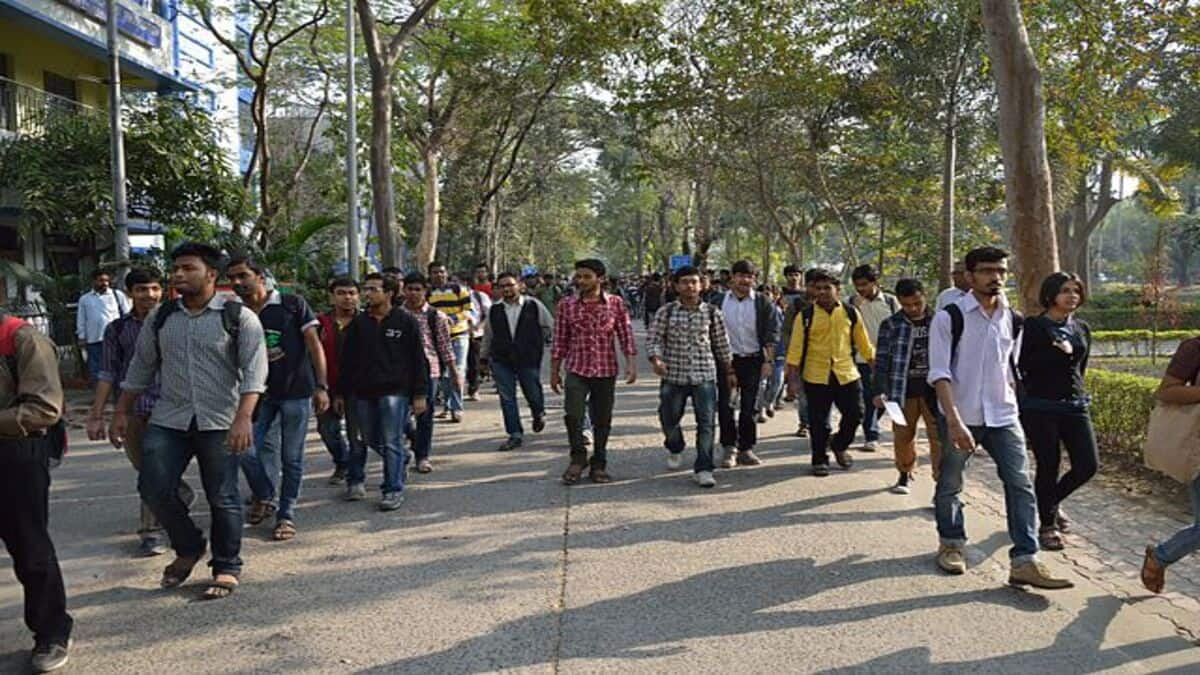UGC urges HEIs to promote student participation in National Environmental Youth Parliament 2026
Suviral Shukla | October 18, 2025 | 04:47 PM IST | 2 mins read
The university-level debates for the NEYP 2026 were held from August 15 to September 30, 2025. The semi-finals will be organised in October and November, followed by the national finals in January 2026.

The University Grants Commission (UGC) has urged Higher Education Institutions (HEIs) to encourage students to participate in the National Environmental Youth Parliament (NEYP) 2026. The objective of the initiative is to spread environmental awareness and foster leadership skills among the youth.
The 4th NEYP 2026 is headed by the Students for Development (SFD), Paryavaran Sanrakshan Gatividhi (PSG) and other stakeholders, holding the potential to shape the future of environmental conservation in India, according to the official notification.
The university-level debates for the NEYP 2026 were held from August 15 to September 30, 2025. The semi-finals will be organised in October and November, followed by the national finals in January 2026.
“The theme of the NEYP-2026 is “Vasudhaiva Kutumbakam: Green Youth Leadership for Planetary Resilience and Sustainable Civilization”, that aligns with India’s G20 presidency and the UN Sustainable Development Goals.” the UGC said in an official notification.
NEYP 2026 bridges gap between knowledge, technology: UGC
The initiative also focuses on planetary resilience (tackling climate change, biodiversity loss, and pollution), sustainable civilization (blending ancient wisdom like Pancha-mahabhuta with modern science), and green youth leadership, emphasizing grassroots action around the 5 Js – JaI, Jungle, Jameen, Janwar, and Jan, it added.
The NEYP 2026 aims to engage India’s youth through seminars, workshops, panel discussions, and policy debates.
“It seeks to inspire young people to actively contribute to environmental protection and sustainable development, nurturing a generation of environmentally conscious and responsible leaders dedicated to preserving India's natural heritage,” the UGC said.
The objective of the NEYP 2026 also aims at empowering youth to lead localized solutions for climate and mitigation. It is working towards bridging the gap between traditional knowledge and tech-driven sustainability.
“Promote circular economy models for waste, water, and energy. Strengthen policy advocacy for regional environmental challenges. Encourage intergenerational dialogue on ethical environmental stewardship,” the UGC added.
Follow us for the latest education news on colleges and universities, admission, courses, exams, research, education policies, study abroad and more..
To get in touch, write to us at news@careers360.com.
Next Story
]Education Ministry reviews progress of Special Campaign 5.0; launches e-waste drives in schools
The campaign aims to improve efficiency in offices and schools through record management, maintenance, and community involvement. It also promotes responsible E-waste handling under Mission LiFE across multiple states.
Vikas Kumar Pandit